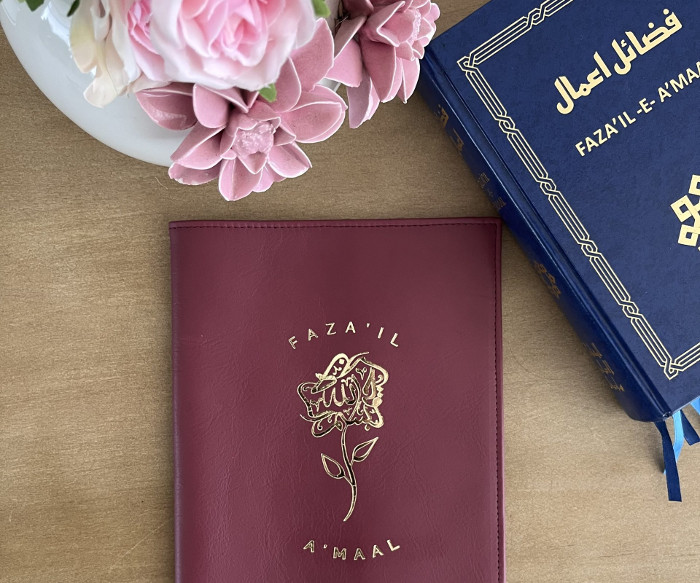
Hazrat Abu Zar's (radhiyallahu 'anhu) Conversion to Islam
Hazrat Abu Zar Ghifaari (radhiyallahu ‘anhu) is very famous among the Sahaabah (radhiyallahu ‘anhum) for his piety and knowledge.
Hazrat Ali (radhiyallahu ‘anhu) used to say, “Abu Zar is the custodian of such knowledge as other people are incapable of acquiring.”
When he first got news of the Prophet’s (sallallahu ‘alaihi wasallam) nubuwwah, he deputed his brother to go to Makkah Mukarramah and make investigations regarding ‘the person’ who claimed to be the recipient of divine revelation. He instructed his brother to enquire regarding the man’s condition, and to listen attentively to his message.
His brother went to Makkah Mukarramah and returned after necessary enquiries, and informed him that he found Muhammad (sallallahu ‘alaihi wasallam) to be a man who commanded people to uphold good habits and excellent conduct, and he also mentioned that his wonderful revelations were neither poetry nor fortune telling.
This report was not detailed enough and did not satisfy him, and he thus decided to set out for Makkah Mukarramah to find out the facts for himself. On reaching Makkah Mukarramah, he went straight to the Haram. He did not know the Prophet (sallallahu ‘alaihi wasallam), and he did not consider it advisable (under the circumstances prevailing at that time) to enquire about him from anybody.
He remained in the Haram until the evening. When it became dark, Hazrat Ali (radhiyallahu ‘anhu) noticed him, and seeing that he was a stranger and traveller, could not ignore him, as hospitality and care for the travellers, the poor and the strangers, were the Sahaabah’s second nature. He, therefore, took him to his home as a guest. He did not ask him about the purpose of his visit to Makkah Mukarramah, nor did Hazrat Abu Zar (radhiyallahu ‘anhu) himself disclose it to him.
Hazrat Ali (radhiyallahu ‘anhu) again took him home for the night, fed him and gave him a place to sleep, but again did not discuss with him the purpose of his visit to the city. On the third night, however, after Hazrat Ali (radhiyallahu ‘anhu) had entertained him, as on the two previous nights, he addressed him saying, “Brother, what is the purpose of your visit here?”
Before explaining his purpose, Hazrat Abu Zar (radhiyallahu ‘anhu) asked Hazrat Ali (radhiyallahu ‘anhu) to promise that he would speak the truth regarding what he wished to enquire from him. Thereafter, he enquired from him about Muhammad (sallallahu ‘alaihi wasallam).
Hazrat Ali (radhiyallahu ‘anhu) replied, “He is certainly the Prophet of Allah. You come with me tomorrow morning and I shall take you to him. There is much opposition (against Rasulullah (sallallahu ‘alaihi wasallam) and the Muslims, due to which I fear that if you are seen with me, you could get into trouble). If I see some trouble on the way, then I shall move to the side of the road, pretending that I have the need to relieve myself or I am adjusting my shoes, and you should proceed ahead without stopping so that people may not think that we are together.”
The next morning, he followed Hazrat Ali (radhiyallahu ‘anhu) who took him before the Prophet (sallallahu ‘alaihi wasallam). In the very first meeting, he embraced Islam.
Fearing that the Quraish might harm him, the Prophet (sallallahu ‘alaihi wasallam) asked him to keep his conversion to Islam a secret. He also asked him to go back home to his clan and return when the Muslims had become much stronger and gained dominance.
Hazrat Abu Zar (radhiyallahu ‘anhu) replied, “O Prophet of Allah! By Him who is the master of my soul, I must go and recite the kalimah in the midst of these disbelievers!”
True to his word, he went straight to the Haram, and right in the midst of the crowd, and at the top of his voice, recited shahaadah:
أَشْهَدُ أَنْ لَّا إِلٰهَ إِلَّا اللهُ وَأَشْهَدُ أَنَّ مُحَمَّدًا رَّسُوْلُ اللهْ
I bear witness that there is no god except Allah, and I bear witness that Muhammad (sallallahu ‘alaihi wasallam) is the Prophet of Allah.
People attacked him from all sides, and would have beaten him to death if Abbaas, the Prophet’s (sallallahu ‘alaihi wasallam) uncle who had not till then embraced Islam, had not physically shielded him and saved him from death.
Abbaas said to the mob, “Do you know who he is? He belongs to the Ghifaar clan who live on the way of our caravans to Syria. If he is killed, they will waylay us and we shall not be able to trade with that country.”
The people understood that trading with Syria was the means for their worldly necessities being fulfilled, and if this road was closed, it would create a lot of difficulties for them. Hence, they withdrew and left him alone.
The next day, Hazrat Abu Zar (radhiyallahu ‘anhu) again repeated the shahaadah before the people, and he would have surely been beaten to death by the crowd had not Abbaas once again intervened and saved him for the second time.
The action of Hazrat Abu Zar (radhiyallahu ‘anhu) was due to his extreme love for shouting out the Kalimah among the kuffaar. The advice of the Prophet (sallallahu ‘alaihi wasallam) of stopping him was due to the love in his heart for Hazrat Abu Zar (radhiyallahu ‘anhu). The Prophet (sallallahu ‘alaihi wasallam) did not want him to be put to hardships by the kuffaar which may be too much for him to bear.
In this story, there was no disobedience found from Hazrat Abu Zar (radhiyallahu ‘anhu) regarding the advice which Rasulullah (sallallahu ‘alaihi wasallam) gave him, as Rasulullah (sallallahu ‘alaihi wasallam) himself was undergoing all sorts of hardships for the sake of Allah Ta‘ala in spreading the message of Islam. Hazrat Abu Zar (radhiyallahu ‘anhu) also thought it fit to follow his example rather than to avail of his permission to avoid danger.
It was this spirit of Sahaabah (radhiyallahu ‘anhum) that took them to the heights of material and spiritual progress in all departments of life. The Sahaabah (radhiyallahu ‘anhum) were such that once they recited the kalimah and entered the fold of Islam, there was no power on earth that could turn them back and no oppression or tyranny could stop them from spreading the word of Allah Ta‘ala.
(Fazaa’il-e-A’maal [English] pg. 23-25, [Urdu] pg.14-16)
 Ihyaaud Deen An Effort to Revive Deen in Totality
Ihyaaud Deen An Effort to Revive Deen in Totality



